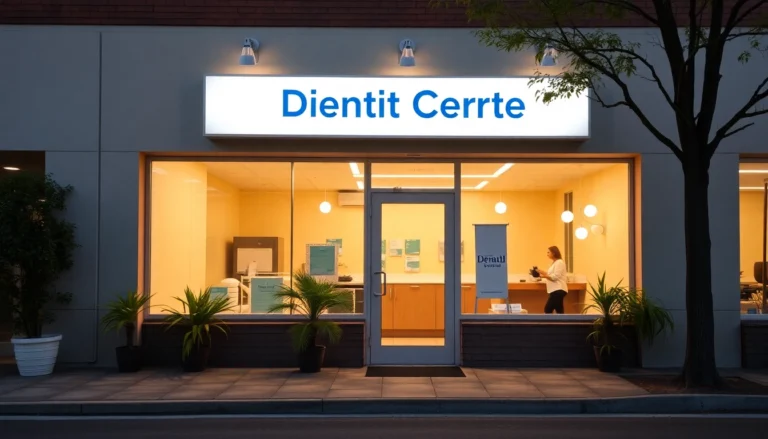Understanding the Role of a Rehabilitation Center in Dependency Recovery
What Is a Rehabilitation Center and Its Core Functions
A rehabilitation center is a specialized healthcare facility dedicated to helping individuals overcome dependencies on substances such as drugs and alcohol, or manage various physical and mental health conditions. These centers provide comprehensive treatment programs designed to facilitate detoxification, therapy, and social reintegration, ultimately aiming to restore optimal functioning and quality of life for patients. At its core, a rehabilitation center operates as a nexus of multidisciplinary healthcare, combining medical supervision, psychological support, and social services to address the complex nature of dependencies and related issues.
Successful recovery depends on tailored approaches that consider each patient’s unique circumstances, history, and needs. Effective rehabilitation encompasses detoxification procedures to eliminate substances, psychological therapies to address underlying causes, and social skills training to prepare for independent living post-treatment. A well-structured rehab program not only diminishes the physical and mental impacts of addiction but also equips individuals with sustainable coping mechanisms.
Types of Rehabilitation Centers: Outpatient vs. Inpatient
Rehabilitation centers can be broadly categorized into outpatient and inpatient facilities. Outpatient centers allow patients to receive treatment while maintaining their daily routines, visiting the center for scheduled therapy sessions and medical check-ups. They are suitable for individuals with mild dependencies or those in the later stages of recovery who have already undergone initial detox processes.
In contrast, inpatient rehabilitation centers provide immersive treatment environments, where individuals reside on-site for the duration of the program. This setting offers around-the-clock medical supervision, structured routines, and limited external stimuli, fostering a safer and more controlled environment for those with severe dependencies or co-occurring mental health disorders. Choosing between these options depends on the severity of addiction, the patient’s home environment, and medical recommendations.
A prime example of a comprehensive inpatient facility is rehabilitation center in Kyiv, which offers state-of-the-art inpatient services tailored to individual needs.
Why Choosing the Right Center Matters for Successful Recovery
Selecting an appropriate rehabilitation center is fundamental to achieving long-term sobriety and well-being. The best centers adopt evidence-based approaches, employ multidisciplinary teams, and create a supportive atmosphere that encourages healing. A poorly chosen facility, lacking adequate expertise or resources, can lead to relapse, resource wastage, or worsening conditions.
Key criteria for choosing a reputable center include accreditation, qualified staff (including licensed psychologists, psychiatrists, and medical practitioners), personalized treatment plans, and comprehensive aftercare services. Equally important is the environment—centers located in tranquil surroundings, such as parks or natural landscapes, foster mental calmness and physical comfort, as seen in the Kyiv center’s green territories that enhance recovery through nature-based therapies.
Our Approach to Dependency Treatment in Kyiv’s Rehabilitation Center
Comprehensive Program Overview: From Detox to Social Reintegration
At our Kyiv-based rehabilitation center, we implement a holistic approach that guides patients from initial detoxification through to complete social reintegration. The process begins with medically supervised detoxification to safely eliminate substances, which is crucial in preventing complications and establishing a stable foundation for further therapy.
Following detox, patients enter psychological and behavioral therapy sessions, including individual counseling, group therapy, and family involvement. These interventions target emotional triggers, self-esteem issues, and coping skills. A vital component is preparing individuals to re-enter society, whether through vocational training, life skills workshops, or peer support programs—fostering independence and resilience.
Personalized Treatment Plans and Evidence-Based Methods
We recognize that dependency is a multifaceted condition requiring tailored solutions. Our team creates individualized treatment plans based on thorough assessments that include medical history, psychological evaluations, and social circumstances. These plans incorporate evidence-based methods such as cognitive-behavioral therapy (CBT), motivational interviewing, and medication-assisted therapy (MAT) when appropriate.
Moreover, we incorporate innovative techniques like mindfulness-based stress reduction (MBSR) and art therapy to enhance emotional regulation and self-awareness. Our goal is to develop sustainable recovery strategies aligned with each patient’s unique profile, ensuring higher success rates and long-lasting sobriety.
Role of the 12-Step Program and Alternative Therapies
The 12-step program, originating from Alcoholics Anonymous, serves as a cornerstone of our rehabilitation philosophy. It emphasizes accountability, peer support, and spiritual growth, fostering a community of sober individuals committed to mutual aid. Our center conducts a comprehensive, secular, 12-step program that resonates with diverse populations, emphasizing personal responsibility and continuous self-improvement.
In addition to 12-step facilitation, we offer alternative therapies such as cognitive-behavioral therapy, motivational enhancement, and family counseling. Integrating these modalities ensures a multifaceted approach, addressing biological, psychological, and social dimensions of dependence. The combination greatly enhances recovery outcomes and supports sustained abstinence.
Stages of Recovery: Step-by-Step Process at Our Rehabilitation Center
Initial Assessment and Medical Detoxification
The recovery journey begins with an in-depth assessment by our medical and psychological professionals. This step includes evaluating substance use history, physical health, mental status, and social support systems. Based on findings, a customized detox plan is developed, often involving medications to reduce withdrawal symptoms and prevent complications.
This initial phase typically lasts from several days to a few weeks, depending on the substance and severity of dependence. Continuous monitoring ensures safety and comfort, laying the groundwork for subsequent therapeutic interventions.
Therapeutic Interventions and Psychological Support
Once detoxification is complete, patients engage in intensive therapy sessions. Individual psychotherapy aims to uncover underlying psychological issues, such as trauma or depression, that may contribute to addiction. Group therapies foster peer support and shared experiences, which are essential for motivation and social skills development.
Our team employs evidence-based techniques like cognitive-behavioral therapy, which challenges maladaptive thought patterns, and motivational interviewing that enhances the patient’s intrinsic motivation. Family therapy may also be included to rebuild trust and improve communication, vital for maintaining long-term recovery.
Post-Rehabilitation Follow-up and Long-Term Resilience Building
Recovery does not end upon completion of our program. We provide ongoing support through aftercare plans, relapse prevention strategies, and refresher sessions. Regular check-ins, participation in support groups, and life skills coaching help patients sustain sobriety and cope with triggers, stresses, and social pressures.
We emphasize resilience building—equipping individuals with tools for emotional regulation, stress management, and healthy lifestyle choices. The goal is to foster independence and self-efficacy, reducing the risk of relapse and promoting a fulfilling, sober life.
Benefits of Enrolling in Our Kyiv-based Rehabilitation Center
Comfortable, Healing Environment with Natural Surroundings
Our center in Kyiv is nestled in a serene environment, surrounded by lush greenery, which contributes significantly to mental well-being. Nature-based therapies, outdoor walks, and relaxation areas facilitate stress reduction and emotional healing. A comfortable physical environment supports therapy effectiveness and enhances the patient’s overall experience.
Multidisciplinary Team of Experts Committed to Your Success
Our team includes experienced psychologists, addiction specialists, psychiatrists, social workers, and medical practitioners, all working together to tailor treatment plans and ensure holistic care. This collaborative approach ensures that every aspect of dependency is addressed, offering patients comprehensive support throughout their recovery journey.
Higher Success Rates and Lasting Sobriety Outcomes
With a combination of evidence-based methodologies, personalized care, and supportive environment, our Kyiv center demonstrates higher-than-average success rates. Long-term follow-up programs and community support mechanisms help ensure that sobriety is sustainable, empowering patients to reintegrate into society with confidence.
Getting Started with Dependence Treatment in Kyiv
How to Reach Out and Schedule an Consultation
If you or your loved ones are ready to begin the journey to recovery, the first step is contacting our center. Appointments can be scheduled via phone or through our online contact form. Our compassionate staff will guide you through the process, answer questions, and provide initial guidance.
Preparing for Admission: What to Expect
Preparation involves gathering relevant medical and psychological history, and being open about substance use patterns. During admission, patients undergo comprehensive assessments, and then proceed with detoxification under medical supervision. Our team ensures a smooth transition into the structured treatment program, offering emotional support throughout.
Support for Families and Loved Ones During Recovery
Recovery is a collective effort involving families and close contacts. We provide counseling and education to loved ones, helping them understand addiction and how to support ongoing sobriety. Family involvement enhances treatment outcomes and fosters an environment conducive to lasting change.








